Benefits of Mulching Landscaping
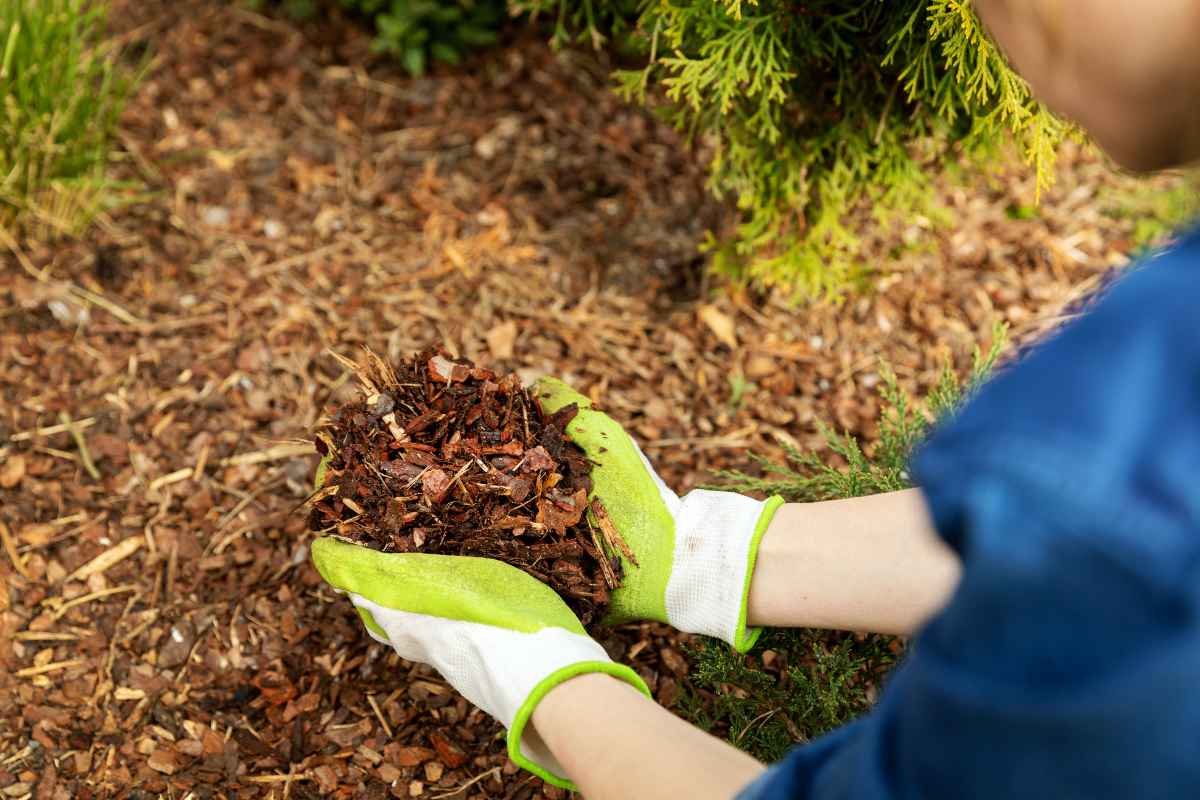
It’s one of those landscaping chores everyone knows about — but few understand fully. “Do I really need to mulch every year?” “Does it do anything besides make things look neat?” At Plantscape, we always say that mulch is one of the simplest, most powerful tools in your landscaping toolkit. Whether you own a home in Chatham or manage a commercial plaza in Windsor, mulching delivers major benefits — if you do it right.
Let’s dig into why mulch matters, when to apply it, and how to avoid common mistakes.
What Exactly Is Mulch?
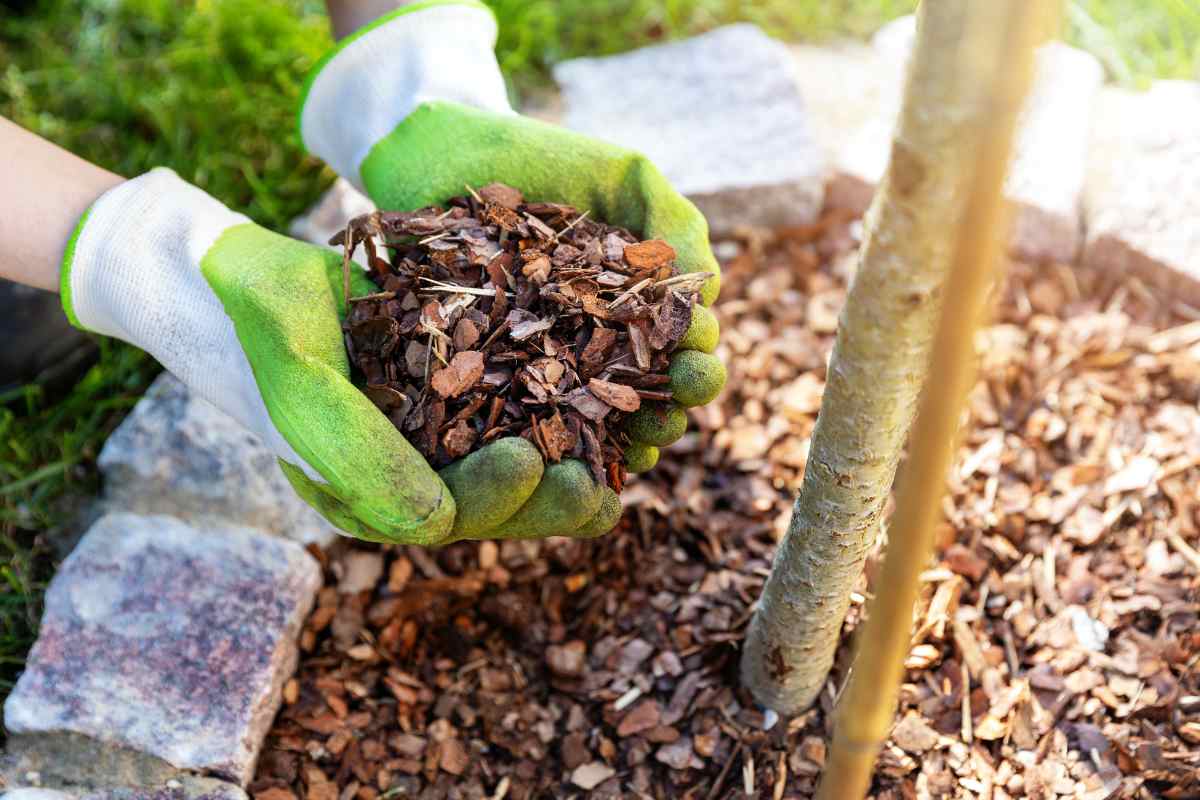
Mulch is any material applied to the surface of the soil to protect and improve the area around plants. The two main types:
- Organic mulch: Natural materials that decompose over time
- Wood chips
- Bark
- Straw
- Leaves
- Compost
- Wood chips
- Inorganic mulch: Doesn’t break down, often decorative
- River rock
- Rubber mulch
- Landscape fabric
- River rock
Each serves a different purpose depending on your property and goals.
Top 6 Benefits of Mulching Landscaping
Mulch is more than just a finishing touch — it’s an all-season workhorse.
✅ 1. Moisture Retention
Keeps water in the soil by reducing evaporation, so you water less often.
✅ 2. Weed Suppression
Blocks sunlight, stopping weeds from growing and competing with your plants.
✅ 3. Temperature Regulation
Acts as insulation — keeps roots cooler in summer and warmer in winter.
✅ 4. Soil Improvement
Organic mulch breaks down into nutrients, enriching your soil naturally.
✅ 5. Erosion Control
Prevents heavy rains from washing away soil and damaging plant roots.
✅ 6. Visual Appeal
Creates a polished, uniform look that makes your garden beds and shrubs pop.
🌟 In Windsor-Essex’s mix of clay and sandy soils, mulch improves structure over time.
How Often Should You Mulch?
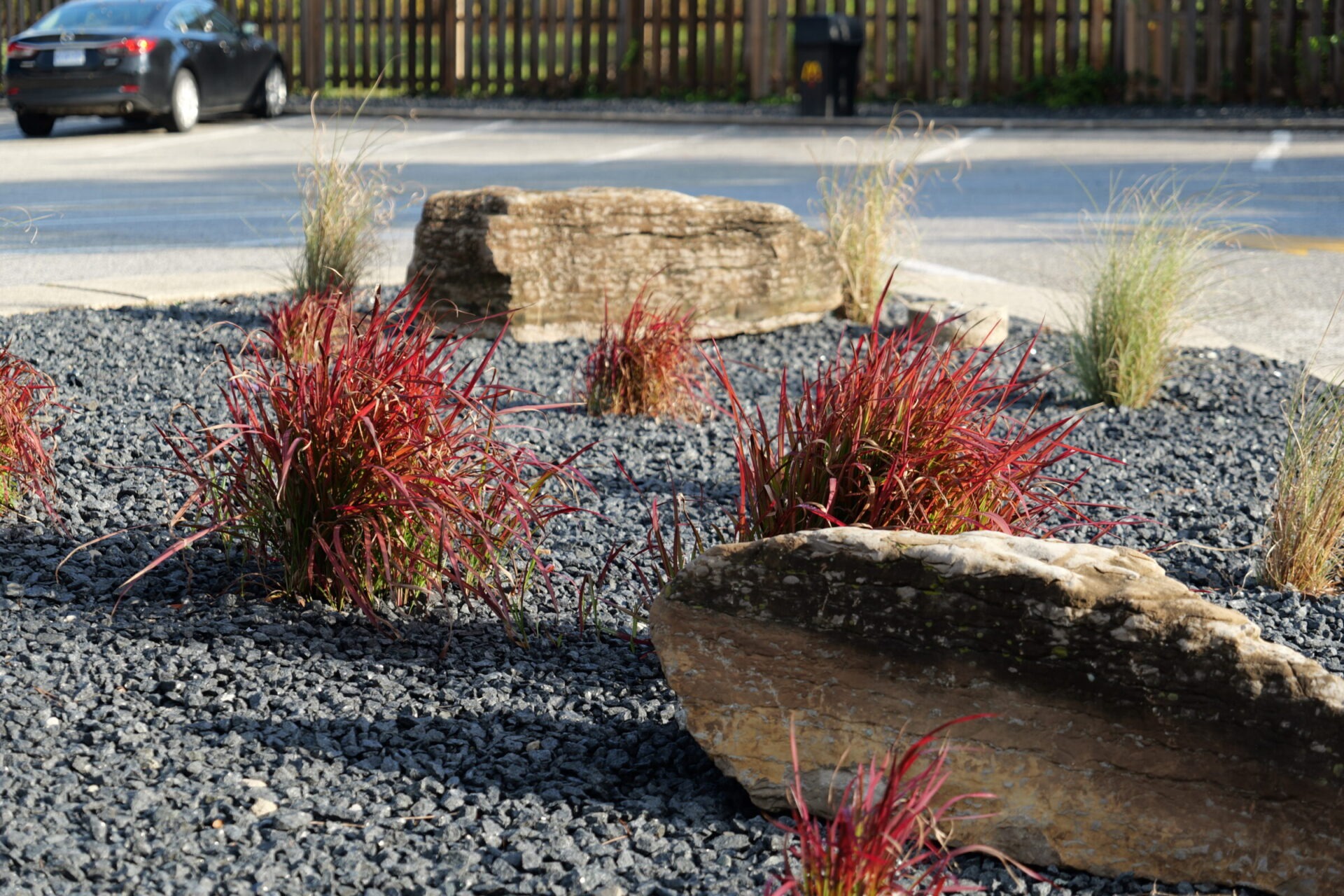
A good rule of thumb is to mulch once a year, ideally in spring or fall:
- Spring mulching: Locks in moisture before summer heat
- Fall mulching: Insulates roots and adds nutrients over winter
You don’t always need to remove old mulch. Often, topping it up with 1–2 inches of fresh material is enough. Aim for a total depth of 2–4 inches.
🔁 At Plantscape, our maintenance plans include regular mulch refreshes based on your plants and property conditions.
Mulching Mistakes to Avoid
🚫 Mulch volcanoes – Piling mulch up the trunk of a tree causes rot and disease. Always keep a “donut hole” around the base.
🚫 Over-mulching – More is not better! Too much can suffocate roots.
🚫 Wrong material – Using bark mulch in wet zones or rubber mulch in flower beds can backfire.
🚫 Skipping prep – Mulching over weeds or poor soil won’t solve problems.
Mulch right the first time and it will save time, water, and frustration later.
Organic vs. Inorganic Mulch: What’s Better?
| Type | Pros | Cons |
| Organic | Feeds soil, looks natural, improves health over time | Needs regular refreshing |
| Inorganic | Long-lasting, great for high-traffic areas | No nutrients, can trap heat |
For most Windsor-Essex homeowners, organic mulch is ideal — especially around trees, shrubs, and perennial beds.
Best Mulch Types for Windsor-Essex Landscapes
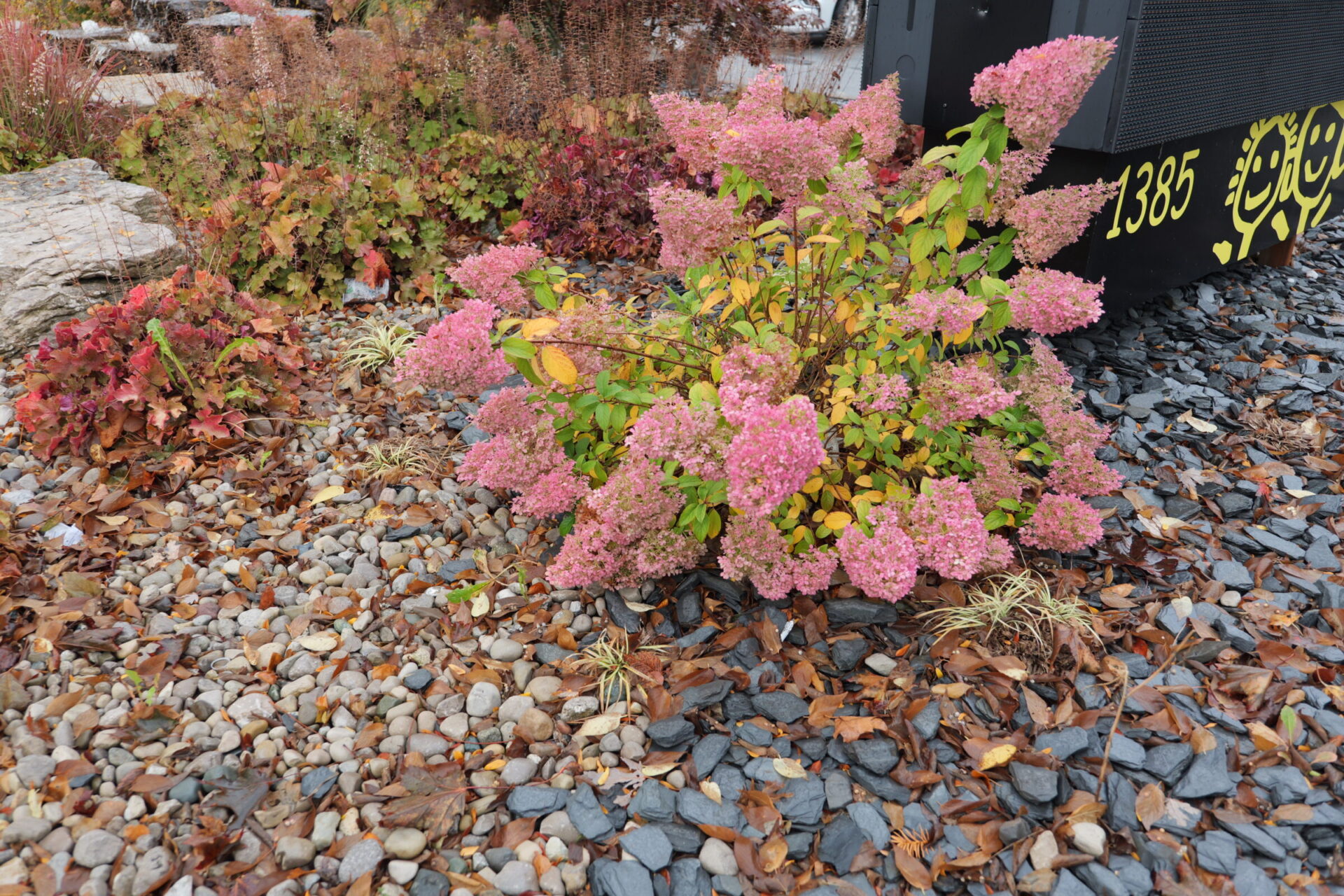
Based on our decades of experience, here’s what works best in our region:
- Shredded bark or cedar mulch – Long-lasting, rich colour
- Composted leaf mulch – Eco-friendly and nutrient-rich
- Natural wood chips – Budget-friendly and great for trees
- Stone or gravel – Best for walkways and dry, sunny zones
🌿 Pro tip: Choose dark brown mulch for contrast in the sun, and cedar for scent + pest control.
Mulch for Curb Appeal
Fresh mulch instantly boosts your property’s appearance. It defines edges, draws attention to your garden beds, and adds a sense of polish and care — especially important for:
- Real estate listings
- Commercial storefronts
- Seasonal re-openings or grand openings
At Plantscape, we recommend seasonal mulch updates before events or listings to make that first impression count.
How Plantscape Does Mulch Right
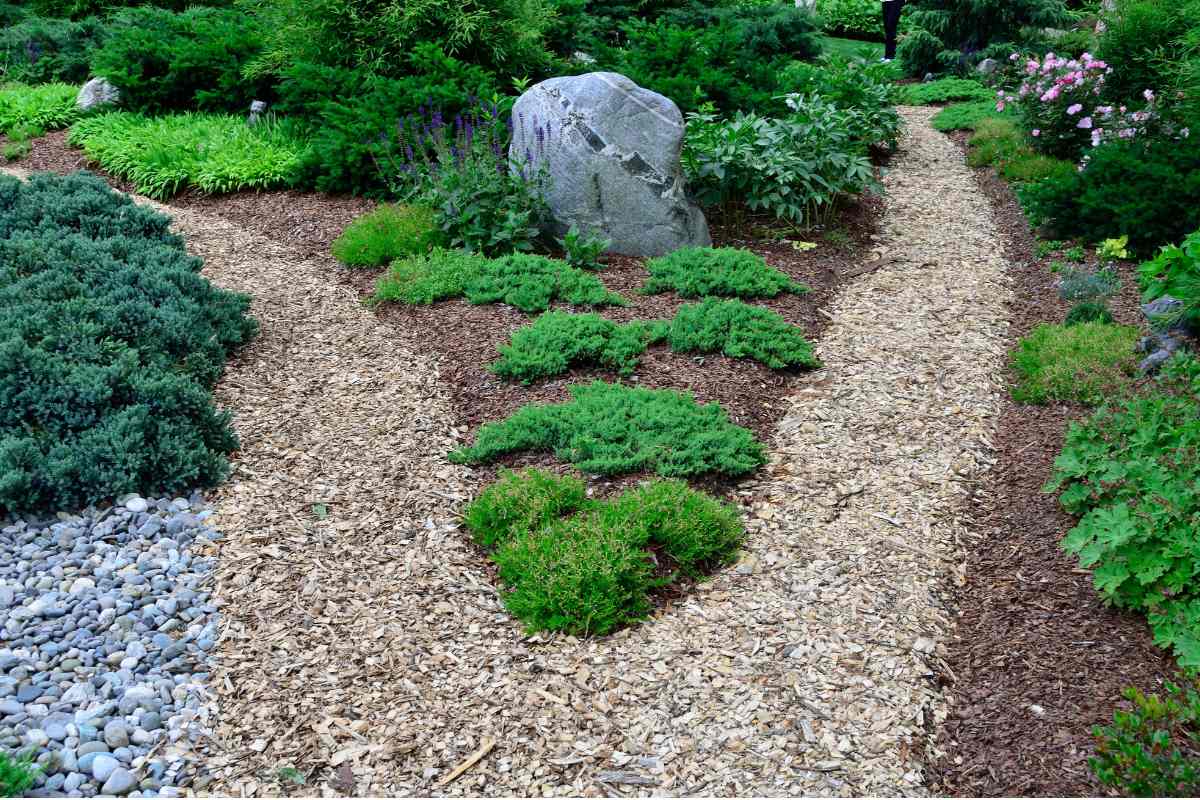
Here’s what our mulching process includes:
- Soil prep and weeding
- Bed edge definition
- Mulch delivery and spreading
- Depth consistency and trunk protection
- Optional bed shaping or stone accents
We can mulch as part of your spring or fall cleanup, or integrate it into a year-round maintenance contract. Explore our landscaping services at Plantscape.ca and let us bring your vision to life.
FAQs About Mulch
How deep should mulch be?
- 2–4 inches is ideal. Less won’t suppress weeds; more can cause root rot.
Do I need to remove old mulch first?
- Not always. If it’s compacted or moldy, yes. Otherwise, a top-up may be enough.
Will mulch attract bugs?
- Organic mulch can attract beneficial insects. Avoid letting it touch your foundation to prevent pest issues.
Is mulch safe for pets?
- Most wood mulches are pet-safe, but avoid cocoa mulch if you have dogs.
Conclusion
Mulch does more than make your garden beds look good — it’s a powerful tool for plant health, soil improvement, and long-term landscape success.
🍂 Let Plantscape handle the dirty work and get your mulch done right. Request a seasonal quote today and keep your landscape looking sharp.
